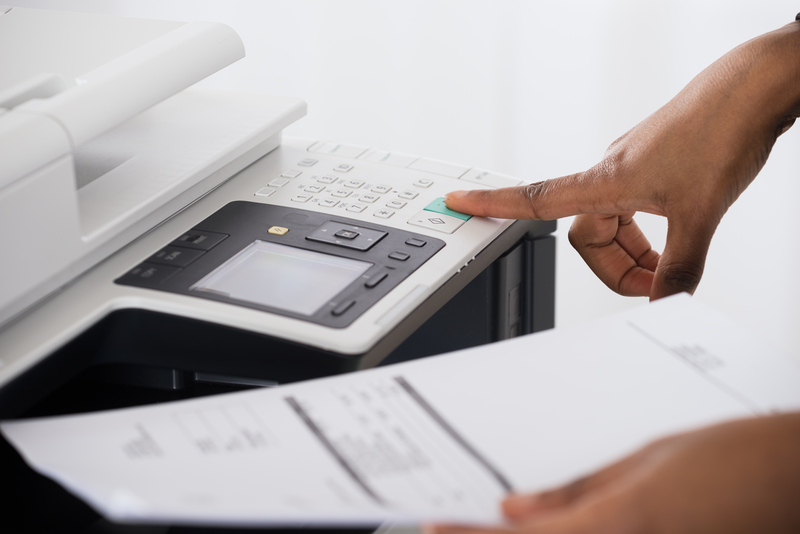Responsible Ways to Dispose of Electronics
Posted on 13/02/2025
With the rapid evolution of technology, electronic devices seem to become obsolete almost as quickly as they hit the market. This has led to an unprecedented amount of electronic waste (e-waste) that poses serious environmental and health risks. Let's explore responsible ways to dispose of electronics that benefit both our planet and future generations.
Donate or Sell Functional Electronics
One of the most sustainable ways to dispose of electronics is to extend their lifecycle by donating or selling them. If your device is still in good working condition, consider donating it to local charities, schools, or organizations. These institutions often welcome gently used electronics, as they can support educational and social programs.
Alternatively, you can sell your electronics. Platforms like eBay, Facebook Marketplace, and Craigslist make it easy to find new homes for your devices. Not only will you be practicing responsible disposal, but you could also recoup some of your initial investment.

Recycling Programs
Recycling is another excellent way to dispose of electronics responsibly. Many manufacturers and retailers offer take-back programs where you can return your old devices for proper recycling. Companies like Apple and Best Buy have established effective recycling programs to ensure that electronic waste is processed correctly. Look for certified e-waste recyclers characterized by e-Stewards or R2 (Responsible Recycling) certifications. These certifications ensure that the recycling process adheres to strict environmental and social standards.
Trade-In Programs
Various electronics manufacturers and retailers offer trade-in programs that allow you to exchange your old devices for store credit or discounts on new purchases. For example, companies like Amazon, Apple, and Samsung provide trade-in options that make it financially viable and environmentally responsible to upgrade your gadgets. Always ensure that you back up your data and perform a factory reset to remove all personal information from the device before trading it in.
Protect Your Data
Before disposing of any electronic device, it's crucial to protect your personal data. Ensure you back up essential files and perform a factory reset to erase all personal information comprehensively. For computers and external drives, consider using a data-wiping software that meets federal guidelines to guarantee that data is irretrievable. Proper data management ensures your personal information is secure and prevents identity theft.
E-Waste Collection Events
Many communities organize e-waste collection events where residents can safely dispose of their unwanted electronics. These events provide an excellent opportunity to ensure your devices are handled by professionals who can recycle them correctly. Check your local government's website or community bulletin for information on upcoming e-waste collection events in your area.
Pros and Cons of Responsible E-Waste Disposal
Pros:
- Environmental Protection: Reduces harmful chemicals from polluting soil and water.
- Resource Conservation: Recovers valuable materials like gold, silver, and copper.
- Community Support: Donated electronics can aid educational and social programs.
- Security: Proper disposal prevents data theft.
Cons:
- Time-Consuming: Researching and finding the right disposal method can be time-intensive.
- Financial Costs: Some recycling programs may charge a fee.
- Limited Access: Not all communities have easy access to recycling or collection programs.
Tips for Responsible Electronic Disposal
1. Research: Always start by researching local disposal options available to you.
2. Manufacturer Programs: Take advantage of manufacturer and retailer take-back or trade-in programs.
3. Regular Updates: Regularly back up data to avoid losing important information during disposal.
4. Community Events: Participate in community e-waste collection events.
5. Spread Awareness: Educate friends and family about the importance of responsible e-waste disposal.

Takeaways
- Prioritize extending the lifecycle of your electronics through donation or resale.
- Use certified recycling programs to ensure proper e-waste processing.
- Take advantage of manufacturer trade-in programs to upgrade responsibly.
- Always protect personal data before disposing of any electronic device.
- Participate in local e-waste collection events to support community efforts.
Conclusion
Responsible electronic disposal is essential for protecting our environment and conserving valuable resources. By donating, recycling, or participating in trade-in programs, we can extend the lifecycle of our devices and reduce e-waste. Remember to take steps to secure personal data and support community initiatives. Through collective efforts, we can make a significant impact in reducing the environmental footprint of our electronic waste. Developing consistent habits and spreading awareness are crucial steps to ensure that our approach to electronic waste is sustainable and impactful.
Latest Posts
How to Separate Trash Efficiently
Ways to Reduce Your Environmental Impact






